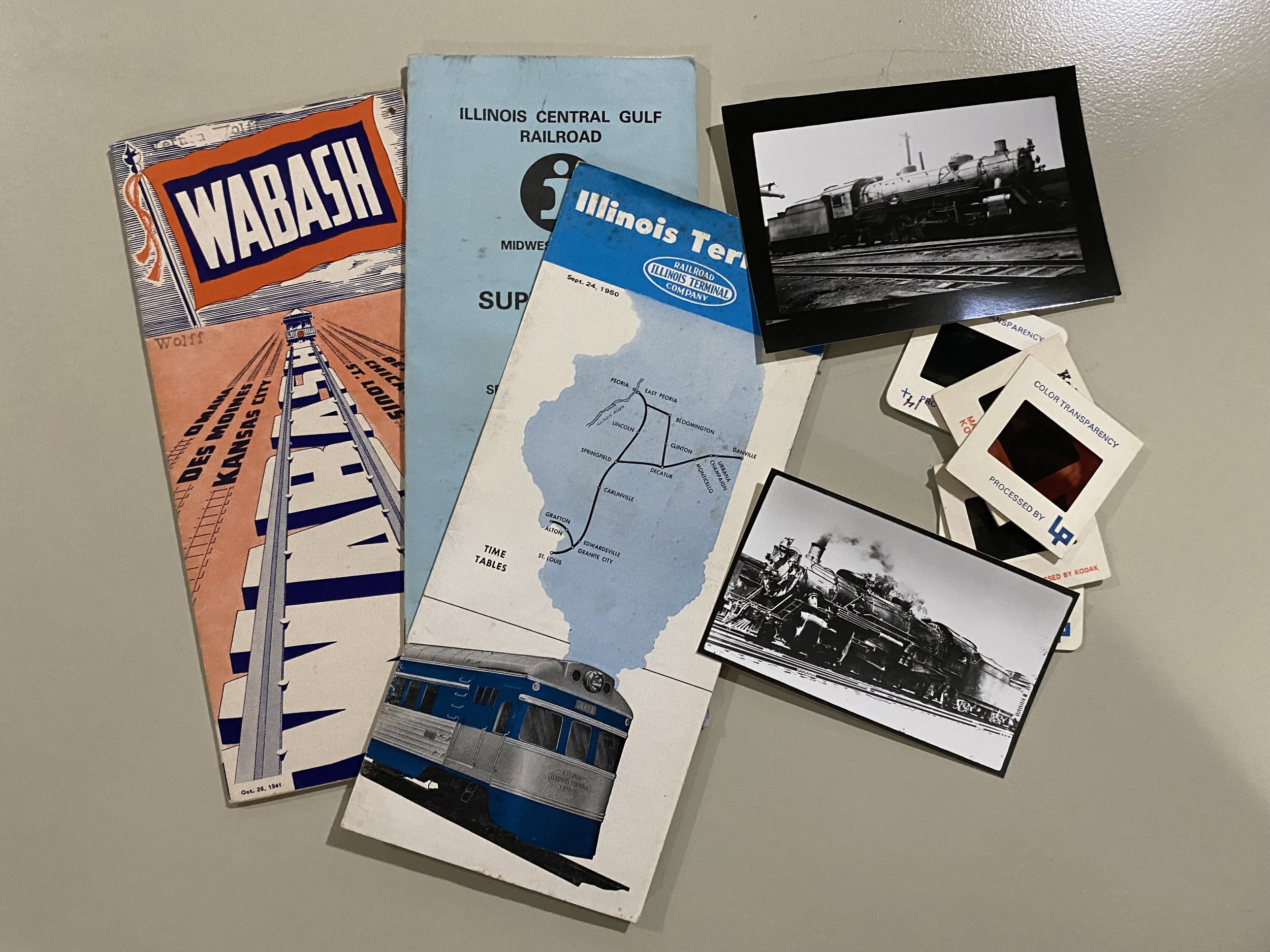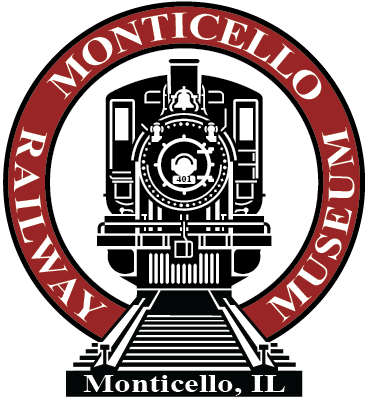
MUSEUM ARCHIVES
Introduction
From its beginning, the efforts of the Monticello Railway Museum’s volunteers have focused on building and maintaining one of the premier tourist railroads in the Midwest. While we are best known for our trains, tracks, and depots, we preserve the rich railroad history of central Illinois in many ways. In addition to locomotives and rolling stock, our collection also includes a wide range of artifacts such as photographs, maps, timetables, lanterns, and other types of smaller railroad items. We maintain two archive facilities; one at our Nelson Crossing Campus in Monticello and the other in the former Lake Erie & Western Railroad freight house at our North Campus in Paxton, Illinois. To see some of the latest activities in our archives, visit our blog.
The Monticello archive and the museum’s business office are housed in a multi-purpose building which was completed in 2006 adjacent to our Camp Creek Yard. A good portion of the artifacts in the Monticello collection were donated by museum members and their families. Other materials such as mechanical drawings and administrative documents were given to the museum by railroads operating in central Illinois.
The collection at the Monticello archive encompasses all the railroads that operated within a 100-mile radius of the museum, an area covering central Illinois and western Indiana. We focus on the three railroads that served Monticello—Illinois Central, Illinois Traction System/Illinois Terminal and Wabash—but also document the history of several other lines that served this region. Among these companies are the Chicago & Alton/Gulf, Mobile & Ohio; the Chicago & Illinois Midland; the Toledo, Peoria & Western and the Monon Railroad. We also document the operations of larger railroads such as New York Central; Pennsylvania; Baltimore & Ohio; Nickel Plate Road; Milwaukee Road and Chicago, Burlington & Quincy in this area. Other railroads are represented in the collection as well.
In addition to documents and photographic material, larger artifacts such as pieces from locomotives owned by these local railroads are also housed here.
The collection at our North Campus at Paxton is the Frank E. Willis Memorial Archive, named after the late president of the Illinois Central Historical Society (ICHS). It is focused primarily on materials from the Illinois Central (IC) Railroad, its predecessors, and successors. The archive was established by the ICHS and became part of the MRM collection when the two organizations consolidated at the end of 2020.
The ICHS was founded in 1979 to preserve the history of the IC. The Society’s membership grew through the 1980s. Its collection of IC photos and documents, many of which were donated by Illinois Central Gulf Railroad (an IC successor), was expanding and needed a permanent storage space. In 1990, the Society purchased the former Lake Erie & Western Railroad freight house in Paxton to serve as its headquarters.
The IC is one of the principal railroads that defines the museum’s collection. We operate several pieces of restored IC rolling stock over a former IC branch line. Many ICHS members and directors had visited the museum and, in some cases, were also museum members. Informal discussion to consolidate the ICHS with the museum progressed for several years before formal negotiations started. An agreement to consolidate the ICHS with the museum was signed in August 2017 and was completed in December 2020. The Paxton freight house will continue to serve as the home of the Willis Memorial Archive.
Monticello Archives
Illinois Central Railroad Archives
The goal of sorting, organizing, and cataloging the museum’s collections at Monticello and Paxton is to be able to share digital resources of documents and photos in our collection. This work, as with all other functions at the museum, is performed solely by volunteers. It should also be noted that both archives would not be possible without the many generous donations that we have received over the years. If you are interested in donating items to either archive, email us at info@mrym.org.


